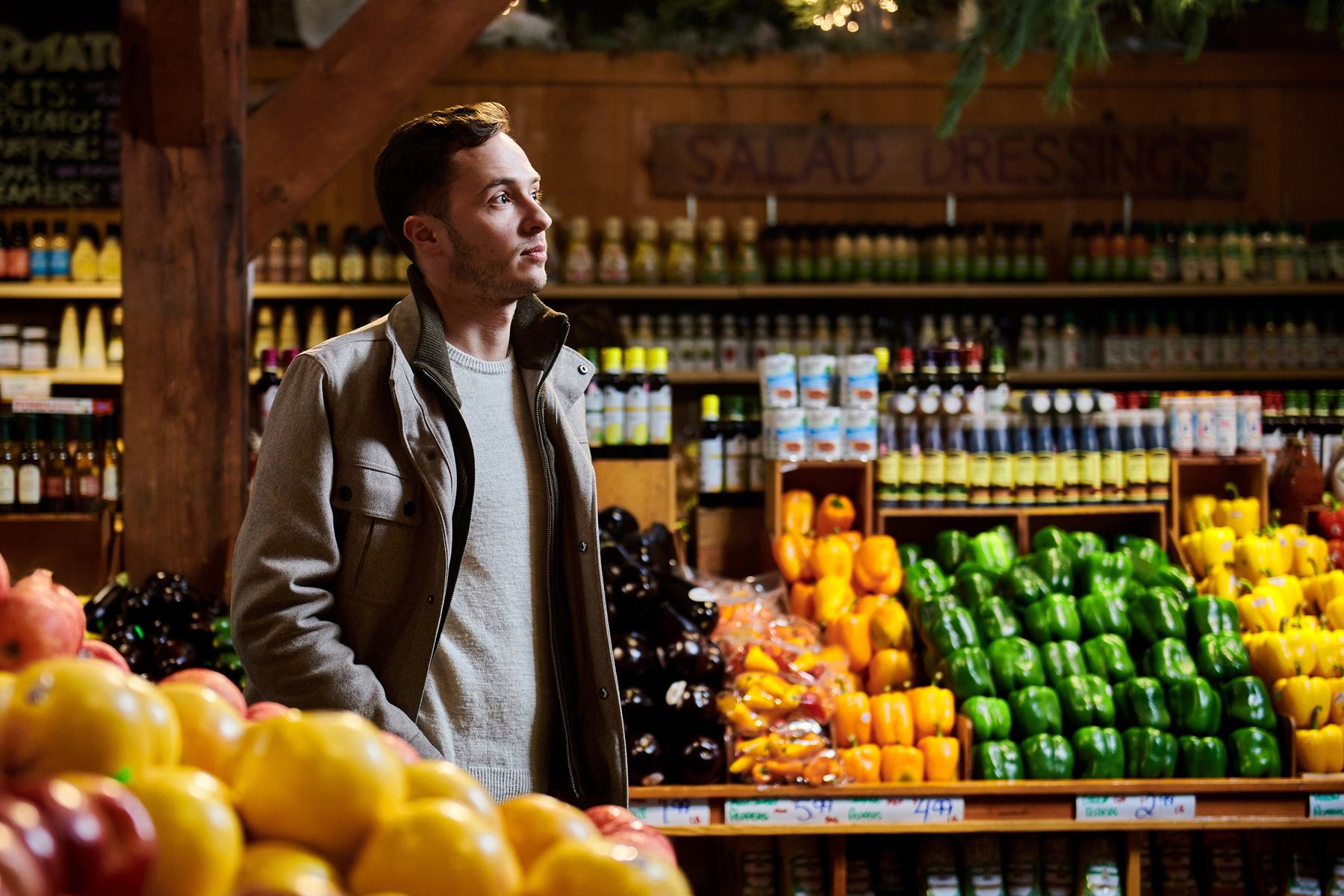Making our food system more resilient.
Once picked, harvested, or butchered, our food is on borrowed time. Add in a labyrinthian supply chain, and by the time that our avocado or steak, apple or chicken breast, reaches its final destination, it has only a few hours to a few days before the natural processes of decomposition take hold.
Because of this, the world wastes one third of the food it produces each year. In the U.S. alone, approximately $42 billion worth of fruit and vegetables are thrown out over that same period. Food waste is both a problem for the industry and public health.
Mori is pioneering a natural, ultra-thin water-based coating that is applied to food to slow the exchange of gasses that cause decay. About the thickness of two red blood cells or just a fraction of the width of a human hair, their coating is tasteless and invisible, giving food a drastically longer shelf life, without altering it in any way.
The coating also enables less or alternative packaging, as it extends shelf life independent of plastic wraps, a fact that is not lost on food producers, retailers, and environmentally conscious consumers.
Born out of Professor Fiorenzo Omenetto’s silk lab at Tufts University, the startup’s core technology was co-invented with Benedetto Marelli (now a professor at MIT with a lab dedicated to materials science and its intersection with agriculture). The pair were investigating the power of silk to stabilize drugs and vaccines when Marelli had the idea to stabilize something significantly larger: a strawberry. He coated the fruit with a silk solution and waited. Days later the strawberry still looked fresh—the coating worked.
It was Omenetto and Marelli’s relationship with Mori co-founder Livio Valenti (also the founder of Vaxess Technologies, a silk-based technology company) that brought CEO Adam Behrens into the fold.
For Behrens, harnessing a commodity material like silk to do something profoundly high tech, was nothing new. “The underlying theme of everything I worked on in my academic career was cost sensitivity. I fell in love with developing solutions out of seemingly unsophisticated materials,” he notes of his time as a doctoral candidate at the University of Maryland College Park.
Behrens also spent time at MIT’s Langer lab, where he worked on technical solutions to problems in the developing world, including single injection vaccination, point-of-care detection of infectious diseases, and food fortification. The mission-driven nature of this academic work, funded in part by the Bill and Melinda Gates Foundation, has compelling similarities to work at Mori. In both cases Behrens is helping to solve problems that disproportionately affect those on the margins.
Its founders consider Mori an “anti-waste company” and its mission is to make healthy food more accessible by keeping it fresher, longer.
When one looks at a days old uncoated piece of raw beef or bunch of uncoated spinach versus those foods coated by the startup, the differences are striking. The uncoated meat is rancid and moldy, the spinach is brown, shriveled, an inedible. The coated foods look fresh and untouched.
What appears to be magic is thanks to the power of silk. Not silk threads like those used in the textile industry, but a water-based solution made with silk molecules. The startup’s core technology renders silk invisible, but retains its key molecular properties. Being a solution, the proprietary coating can be applied quickly and easily to any shape, size, or texture by dunking or spraying.
Mori has tested its coating on dozens of types of fresh foods, including the most delicate vegetables like lettuce. With its large surface area, mild taste, and thin leaves, lettuce is the ideal proving ground for an edible coating.
Behrens likes to recount the day when he met a CEO of a lettuce company and asked him to sample a piece of the vegetable after being washed in the silk solution. The executive, whose career is devoted to the pursuit of the perfect head of romaine, could not see, taste, or otherwise detect the coating.
The technology Mori has developed, works. But to make any dent in the global food waste problem, it must be able to scale in a massive way. Thankfully, silk is plentiful. The startup can use any grade of the natural material, including those rejected by the textile industry. As Behrens notes, “We could coat every apple in the US today for only a small fraction of the silk used in garment industry.” That’s a lot of apples.
Mori can coat 70-80% of foods with its primary formula. Such universality bodes well for large-scale adoption. It also means that the startup can keep its costs down and compete in an industry with historically low margins. Yet even with such comprehensive effectiveness, there is room to elevate the technology.
It’s the job of Sezin Yigit, VP of R&D, to find the limits of the startup’s core tech—and take it further. An unabashed foodie as well as a graduate from the Kaplan Lab at Tufts University (where she explored silk as a gene delivery agent), she is uniquely qualified to help commercialize Mori's coatings.
Behrens, Yigit and their team are building a true platform technology. While preserving perishable foods is the startup’s immediate challenge, variants of its core tech can help stabilize active ingredients in new ways, leading to functional foods yet to be imagined.

